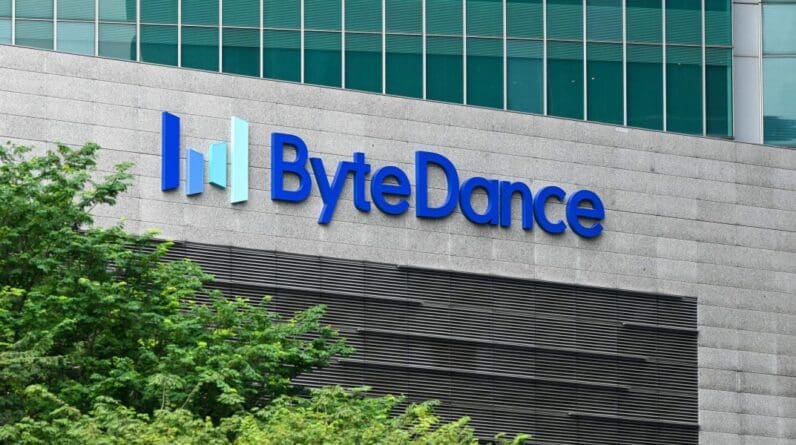
China’s tech royalty is going through a bit of a shake-up. Upstarts like PDD Holdings, owner of Pinduoduo and Temu, and returning giants like Baidu, are taking advantage of changing e-commerce trends and the rise of AI to challenge firms like Alibaba, Tencent and JD. Even ByteDance, which revolutionized social media with its short-video apps Douyin and TikTok, is feeling the heat.
ByteDance CEO Liang Rubo was just the latest to fret about being left behind according to excerpts from his speech posted on the company’s WeChat account. Liang complained that employees were “not sensitive enough to external changes” and griped that staff only started talking about ChatGPT, the buzzy chatbot developed by OpenAI that sparked the AI boom, in 2023.
Liang warned that inefficiencies and a lack of speed would make ByteDance a “mediocre organization.” He cited one instance where a task was initially forecast to take 1,000 man-days to complete, a timeframe that was reduced to just 15 man-days after an in-depth review.
Much like in the U.S., China’s tech sector is in the midst of its own race to adopt generative AI. The most prominent effort is from Baidu and its ERNIE chatbot, which the tech firm claims is as good as OpenAI’s GPT-4 model. But Alibaba, Tencent, JD, and an array of Chinese startups are all launching their own AI services.
ByteDance launched its own chatbot, Doubao, in August last year. The Verge reported in mid-December that ByteDance was using OpenAI’s technology to train its own chatbot, violating OpenAI’s terms of service. OpenAI has since suspended ByteDance’s account.
Liang is the second Chinese tech CEO to complain about employees this week.
On Monday, Tencent CEO and co-founder Pony Ma told staff that the company’s video game business “achieved nothing” last year. He complained that Tencent’s new games did not perform as well as expected, reports Reuters. While Tencent’s staple hits like Honor of Kings and PUBG Mobile continue to deliver strong revenue, the company’s newer games are losing to those from other Chinese developers like NetEase and miHoYo, developer of Genshin Impact.
Tencent’s CEO now wants to juice more growth from WeChat, the company’s ubiquitous messaging app. Ma told employees that they should “find new sprouts from the old tree,” referring to the now 13-year-old platform and its social media offerings.
Yet Ma was hesitant about expanding WeChat’s other major offering. The platform also serves as one of China’s two major digital payment processors, alongside Ant Group’s Alipay. Ma reportedly told staff from the company’s digital payments service unit to reduce its share in the market, and that the company should be viewed as “a partner of banks.”
Regulators fined Tencent almost 3 billion yuan, or $422 million, last year for violating regulations regarding managing customer data.
Alibaba and JD
China’s e-commerce giants are also criticizing their employees for taking it easy.
Ricard Liu, chairman and founder of JD.com, told employees not to “lie flat,” referring to the Chinese slang term of doing the bare minimum to get by, in a post on the company’s internal discussion board. Liu warned that, without change, there would be “no way out for the company.”
Liu’s warning followed a similar message from Jack Ma, founder of fellow e-commerce firm Alibaba. Ma took to Alibaba’s internal forum in November calling for “change and reform” to the company, and praising newcomer PDD Holdings.
PDD Holdings is the owner of the e-commerce platform Pinduoduo and the U.S.-based shopping platform Temu. In China, Pinduoduo tends to offer lower prices and also introduced group buying which allows consumers in community groups to buy items like groceries in bulk for a lower price.
While Alibaba and JD.com generate more revenue than PDD, investors seem more bullish about PDD’s prospects. PDD reported 94% year-on-year revenue growth for the quarter ending Sept. 30, and shares of PDD are up more than 20% in the past year contrasted with a drop in over 30% for Alibaba and over 60% for JD.com.







